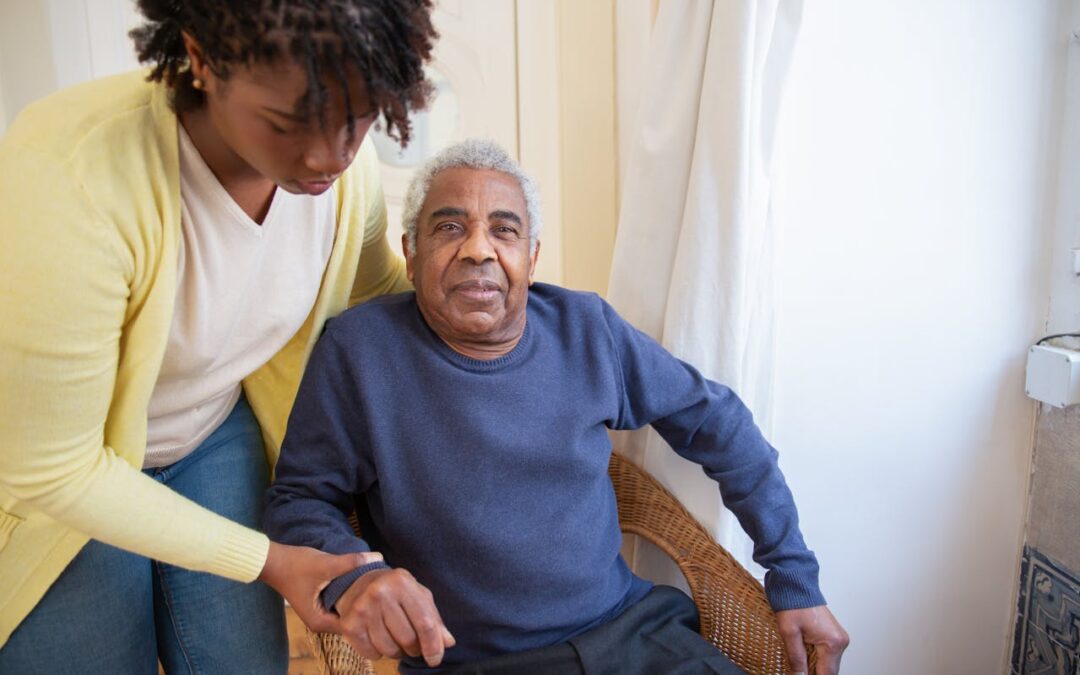As our loved ones reach their golden years, their care needs often increase, making it necessary to seek reliable support and assistance in maintaining their independence, comfort, and quality of life. One popular solution is in-home care services, which provide elderly individuals with personalized care and assistance in the familiar surroundings of their own homes.
Navigating the process of choosing the right in-home care services can be challenging, which is why we’ve designed this comprehensive guide to help you make an informed decision. We’ll explore crucial factors to consider when evaluating in-home care providers so you can ensure your loved one receives high-quality care tailored to their unique needs and preferences.
Understanding the Different Types of In-Home Care Services
Before embarking on the search for the perfect in-home care provider, it’s essential to be aware of the various types of services available. This knowledge will help you determine which services best align with your loved one’s needs. Some common types of in-home care services include:
- Personal care: Assistance with daily activities such as bathing, dressing, grooming, and mobility.
- Companion care: Providing emotional support, companionship, and social interaction to combat loneliness and isolation.
- Homemaker services: Aid with light housekeeping tasks, meal preparation, and errand running.
- Memory care: Specialized support for individuals with cognitive conditions such as Alzheimer’s and dementia, focusing on safety and mental stimulation.
- Respite care: Temporary relief for family caregivers who need a break or are unavailable for a short period.
Top 7 Questions to Ask Your Potential In-Home Care Provider
When evaluating potential in-home care providers, asking the right questions can provide valuable insights into their competence and ability to cater to your loved one’s unique needs. Here are seven essential questions to consider asking:
- How long have you been providing in-home care services, and do you have experience working with clients with similar needs as my loved one?
- What type of care services do you offer, and can you tailor them to my loved one’s specific requirements?
- Are your caregivers properly trained, licensed, and insured? How do you screen and select caregivers?
- How do you develop and update personalized care plans, and can our family be involved in the process?
- How do you ensure communication and coordination between caregivers, clients, and family members?
- Can you provide references from previous clients who have utilized your services for similar care needs?
- What is your protocol for handling emergencies, and how do you handle caregiver illness or absences?
Preparing Your Home for In-Home Care Services
Before welcoming an in-home caregiver into your loved one’s residence, it’s important to ensure the home environment is adequately prepared. This preparation promotes safety, comfort, and efficiency for all parties involved. Some key steps include:
- Assess and mitigate fall risks: Remove clutter, rugs, and obstacles, install grab bars and railings if necessary, and ensure proper lighting throughout the home.
- Create a safe and accessible bathroom: To reduce the risk of accidents, invest in a raised toilet seat, shower chair, or non-slip bath mats.
- Provide space for the caregiver’s belongings: Set aside a small area for caregivers to store their personal items and use during breaks.
- Organize medications and medical supplies: Ensure all medications are appropriately stored and labeled, and have a dedicated space for any necessary medical equipment.
- Prepare important documents: Create a folder containing essential medical records, emergency contact information, and any legal documents related to caregiving.
Addressing Common Concerns about In-Home Care Services
It’s normal to have some concerns when considering in-home care services for your loved one. By addressing these concerns in a proactive manner, you can feel confident in your decision and focus on providing the best possible care for your family member:
- Establishing clear communication: Open communication between clients, caregivers, and family members can prevent misunderstandings and ensure that everyone is on the same page regarding care plans and expectations.
- Monitoring care quality: Regular check-ins and updates from in-home care providers can help family members monitor the quality of care and address any issues promptly.
- Ensuring continuity of care: Reliable in-home care providers should have protocols in place to guarantee continuous care in the event of caregiver absences or emergencies.
Conclusion
Choosing the right in-home care services for your elderly loved one is a crucial decision that can greatly impact their quality of life, comfort, and well-being. By understanding the different types of services available, asking essential questions when evaluating providers, and preparing your home and family for a smooth transition, you can feel confident in your choice of an in-home care provider. Remember, it’s important to select a provider that not only meets your loved one’s needs but also shares your family’s values and caregiving philosophy.
Ready to find the perfect in home care in Atlanta, GA for your loved one? Honeybee Homecare’s premier in-home care services provide personalized support designed to meet every individual’s unique needs. Schedule your free in-home consultation today!

